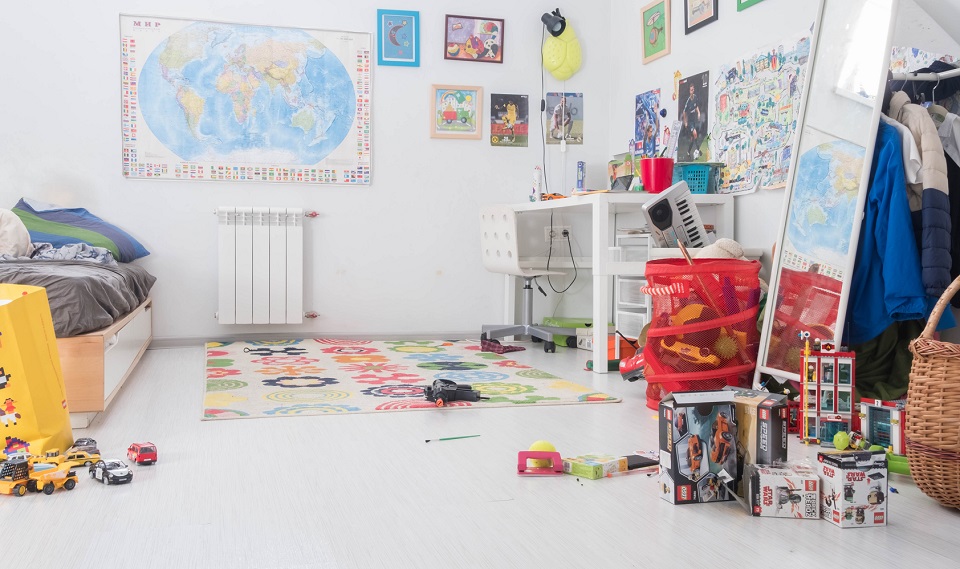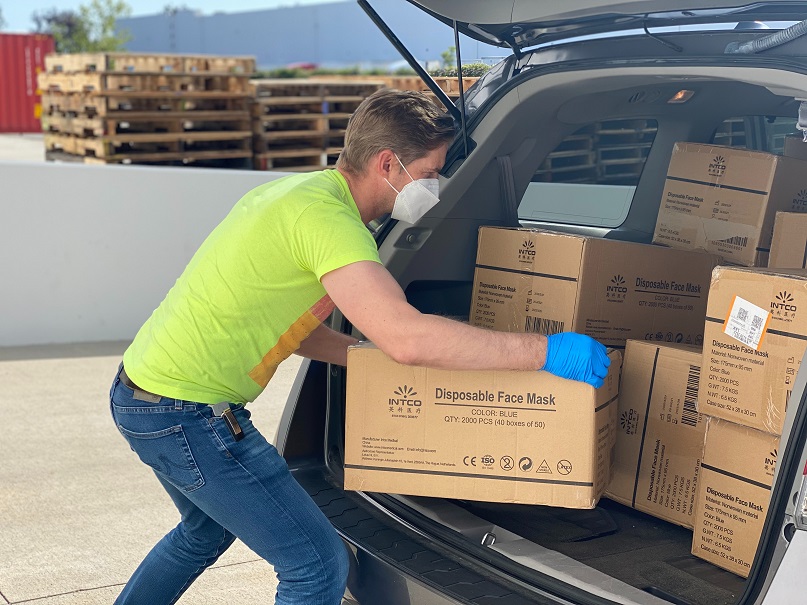How to Prepare Your Car for International Shipping

Auto shipping can be a tricky part of long distance and International shipping and moving. Whether you are moving from state to state or to another country, you will inevitably be forced to decide whether or not to ship your vehicle with your other possessions.
Many men and women partner with long distance moving companies for auto shipping rather than driving it across the United States themselves or purchasing a new foreign car when they arrive overseas.
Luckily, with today’s technology and a booming auto transport industry, finding a way to ship your vehicle should be no problem. When you do find the right company for your needs, it is important that you prepare your car or truck for shipping.
The following is a guide for owners who are shipping a car from one location to the other.
Wash the vehicle, both inside and out
When you are shipping a car from one place to another, it is very important that you monitor your vehicle for any damage. After all, you do not want to spend your hard-earned money on these services only to incur even more expenses to repair damage from the shipping process.
By cleaning your vehicle, it will make it easier for you to notice any damage or imperfections that might result from possible negligence on behalf of the carrier. Of course, it never hurts to send your car off to its new location looking pristine and new, either.
Go over your car, taking notes and photos
Take note of your vehicle’s current condition so that you can make an accurate determination on whether or not it was damaged during transport. Your records will only be thorough if you keep detailed notes accompanied with photos.
During this process, you should be on the lookout for things like:
-
Door dings
-
Scratches
-
Dents
-
Chips in the paint
-
General auto body damage
Offer these notes and photographs to the carrier so they can file it away, as well.
Empty your vehicle
You are paying for auto transport, not the transport of personal items. For this reason, you will want to empty your vehicle completely. This is a good idea for two reasons.
Shipping a car to a new location is an easy and safe process, but you can never be too careful when it comes to theft. If you want to eliminate the potential for theft of valuable items like a cell phone, GPS or DVD player, then remove them from your vehicle. During auto transport, a number of individuals inspect your vehicle.
Furthermore, loading your vehicle with personal items might constitute a violation of your agreement with the moving company. When you pay for car shipping and then load your vehicle with personal items, the carrier might not feel it is their duty to move those items for you.
Make sure your car is operating properly
During the auto transport process, professionals will drive your car a little bit. It never hurts to make sure your vehicle is in perfect driving condition. This also lets you arrive at your new location knowing that your car will be ready to roll.
Some common car care tasks include:
-
Properly inflate your tires
-
Change your oil
-
Check all fluid levels
-
Make sure it has gas (but only a half tank)
The professionals will take care of shipping your car, but it always helps to be prepared!
If you want a cost-effective way of moving your belongings, have a professional moving company like US Border Movers do the job.
Moving Your Teen

Moving your teenager seems like an additional project while in the process of moving but all you need is a little preparation and some patience. Getting your teenager out of bed in the morning can be an exhausting drama. So how on earth are you going to get them to leave their friends, their school and the only home they’ve ever known? The answer: With the right mix of sympathy, patience and planning it doesn’t have to be a disaster.
Why Teens Have More Trouble
Relocation is hard on adults and kids. But for teenagers the transition is tougher. Teens confront a host of social and psychological issues that younger children and adults do not, thus they are probably going to be much more reluctant to go along with a move and much more vocal about their objections.
When your teen hears that they have to move, the first thing they are likely to think is that moving will separate them from their friends. During junior high and high school, adolescents put a tremendous amount of time and energy into finding just the right peer groups. Even if it seems that they have a new best friend every month, the process of reaching out to other teens and learning how to socialize consumes an inordinate amount of their energy.
Through this painstaking process of “fitting in”, teens are starting to form their own identity. It should not be much of a surprise that teens get very upset when they hear they have to part from a comfortable territory like friends and family. The uncertainty of having to adjust to an entirely new town, school and social scene presents an awkward feeling of having to fit in all over again.
Teens crave predictability. During adolescence everything is changing: their voice, their clothes, their responsibilities. Against that backdrop, having a stable, familiar home and social life makes a real difference. Moving throws this all into flux. Teenagers also like to think of themselves as adults. When mom or dad tells them the family is moving and that is that, teenagers feel, quite acutely, how far they actually are from full adulthood.
As melodramatic as teenage angst may seem, ignoring or minimizing the real difficulties that moving presents to teenagers only makes them worse. To help your teens make the transition as smoothly as possible, parents have to know when and how to intervene and when to back off.
What You Can (and Cannot) Do
If your teenager is feeling a little down about the move, trying to talk you out of moving or not helping out, it’s easy to get frustrated with their reactions. The most important thing you can do, however, is engage their concerns and feelings. Like most problems teenagers confront, simply listening to them – without trying to argue or make a point – can do a world of good. Relocation is a long process and there are steps you can take (and a few you shouldn’t) to help minimize stress on your teen. Some of the more helpful are listed below:
-
Do not automatically assume your son or daughter is unhappy about moving. Take a moment to talk with your teen to find out how they feel about the upcoming movie. Some teens are excited and look forward to the new start.
-
If your teen is upset do not let it make you feel guilty. Eventually your kids will accept the necessity of relocation – they are more resilient than you think. Meantime, if they sense that you are uncertain about moving they will be even more anxious.
-
If possible, try to schedule your relocation around the academic calendar. Leaving after classes have let out for the summer is less disruptive – to their school grades and social life – for your teenager than leaving in mid-semester.
-
If your son or daughter is a senior in high school, consider leaving them with relatives or a trusted friend until they graduate while the rest of the family moves. Trying to adapt to a new school late in the game may not be worth it.
-
Schedule a time in the not-too-distant future when your teen can return to visit. If relocation doesn’t seem as permanent, your teen will have an easier time letting go.
-
The less your teenager knows where it is they’re moving, the more anxious they will be. Together with your teen, try to find out as much as possible about your new hometown.
-
If you will be hunting for a new home, factor your teen’s preferences into your decision to buy. This can make them feel their needs are important to the family.
-
Once you get settled, make sure your teen has plenty of ways to communicate with their old friend. Get the internet connection set up, so your teen can video chat over smart phone or computer.
-
Get involved in the social and community life of your new hometown as soon as possible. Join a religious congregation, enroll in youth sports or encourage your teen to get involved with extracurricular activities. All these can help plug your teenager back into the social network they feel they’ve lost.
-
If you have younger children, assign your teen to look after them during the moving process. Besides making your life easier, it can help keep your teen from fixating on their own dilemma.
-
Watch carefully but do not worry too much. It’s perfectly natural for your teen to act mopey and dissatisfied in the weeks and months after moving. More often than not all they need is space, and time, to get adjusted. Keep tabs on them: if their school grades start to slip, or if they do not show any interest in socializing, seek professional help. Otherwise let them find their own way.
Click here if you are in need of a professional moving company to help with moving your house equipment after packing them. Just select the services you need and pay for the space you use. It's easy.
Moving to Missouri

If you are moving to Missouri, you should be excited about the road ahead of you. As the country’s 19th largest state with a population of 5,988,927 (Census 2010), Missouri is steadily growing. Missouri has everything imaginable from metro cities to rugged mountains stretching across the state. Near the geographical centers of the United States, you can almost say Missouri is convenient for the West and East Coast.
Missouri is a mild-mannered state when it comes to the climate. Summers aren’t scorching hot and winters are not one degree away from frostbit. Without the extremities, you will be able to enjoy all four seasons. The saying goes "If you do not like the weather just wait and it'll change.”
Missouri doesn’t fall short of things to do for people of all ages. Tourism is one of Missouri’s major attractions with major bike festivals, state fairs, amusement parks, and outdoor attractions. No matter the season, there are enough options to keep you busy.
Great weather, outdoor activities, and an overall growing state make Missouri a great place to live. Get additional information on moving to Missouri.
Protecting Yourself When You Move to Missouri
Protecting your move is one the most important things you can do besides finding the right moving company. Even if you feel you have found the right moving company it doesn’t mean your household goods or you are automatically protected. Here are some tips to make sure you and your goods are protected:
-
Find out when move-in/move-out times are and if there are any restrictions to using the elevator.
-
Find out what and how much the moving company is liable for.
-
Find out if the move will be brokered or handled by the mover you hired?
-
Verify all licenses and papers are up-to-date.
-
Understand your rights and responsibilities when it comes to your move. Inspect your movers tariff so you know what you are being charged.
-
What happens if there is a dispute? What does the mover have in place for resolving disputes concerning lost or damaged goods?
-
Read through and understand all documents prior to signing. Never sign blank documents.
-
Thoroughly understand your insurance options with the mover. Find out about additional coverage on high value items.
If you need to file a complaint or feel you have been victimized by a household goods moving company, you can submit a claim through the Federal Motor Carrier Safety Administration site. You can also call toll free Hotline number 1-888-DOT-SAFT (368-7238).
Finding the Right Home in the Right Neighborhood
Whenever you move to a new state it is all about finding the right home and the right neighborhood. No other state welcomes you like Missouri with a saying that says “Take your shoes off and stay awhile.” Here are the different parts of Missouri that you can live in:
St. Louis Area
St. Louis is Missouri’s largest metropolitan area placed along the banks of the Mississippi River. You will find St. Louis to be the home of Anheuser- Busch Beer. St. Louis is also the home to the renowned Gateway Arch landmark.
Kansas City Area
Dominating most of the western part of Missouri lies the Kansas City area. Often called the “cowtown”, Kansas City is a metropolitan area heavily noted for its industrial and agricultural background. No longer just an industrial city, Kansas City is becoming more “modern.”
Central Missouri
Includes Jefferson City and Columbia
Northeast Missouri
Including Hannibal and Kirksville, the northern tier of the state represents much of the farmland in Missouri. You will find wineries around German towns and the Hermann area.
Northwest Missouri
Includes St. Joseph, Arrow Rock, and Weston
Southwest Missouri
Part of the Ozarks, Southwest Missouri includes Springfield, Joplin, and Branson. Surprisingly, Springfield and Joplin have rank high among one of the fastest growing regions in the nation. Southwest Missouri holds the most family fun attractions that bring forth tourists. Theme parks, huge malls, and other shopping attractions spread from Springfield, Joplin, and Branson.
Southeast Missouri
This area includes cities like Ste. Genevieve, Poplar Bluff and Cape Girardeau. You will find rugged mountains and rolling prairies surrounding this Southeast region of Missouri. Southeast Missouri has seen a huge surge in growth in recent years making this region a high sought after area.
Largest Cities by Population: Kansas City, Saint Louis, Springfield, Independence, Columbia, Saint Joseph, Lee's Summit, Saint Charles, Saint Peters, Florissant
Have questions or need a moving estimate? Let us know! We'll be happy to help. Click here to know more!
Are your moving expenses tax deductible?

If you've landed a job that forces you to move to a new residence, you might be a little bit stressed but one thing that may ease your tension is you may have some deductible moving expenses. Some employers cover the costs of your move but if that isn’t the case for your move, you still may be eligible to be reimbursed by the Internal Revenue Service. Of course not everyone is eligible to deduct moving expenses from their move. There are requirements you must meet to be able to process the deductible moving expenses.
To get the benefit of deducting some of your moving expenses you need to meet these three guidelines. The first guideline you’d have to meet is the timing of when you move into your new home. You would have to move into your new home within one year of your starting date at your new job. If you failed to do this, you must show proof that there were reasons beyond your control that wouldn’t allow you to move into your new residence.
The next rule/guideline is known as the distant test. Your new job must be further than 50 miles from your old home. It only takes your old home into consideration because it’s only logical. There is no reason to move into a new home if your new job is still relatively close to your old home.
Another category you must fall into is what’s known as the time test. You must work full-time for at least 39 weeks during the first 12 months after you arrive in the general area of your new job location.
If you fall into these three categories you have a good shot at having your moving expenses deducted from your taxes.
Don't get too comfortable deducting your moving expenses, there are some items that you can’t deduct like the moving expenses of buying or selling your home, including mortgage fees and even paints. Some other things that you can’t deduct from your moving process are pre-move house-hunting expenses, any real estate taxes that you might come across, any security deposits and much more.
Even if you choose not to use a moving company and their trucks because you decided to do your move yourself, traveling by car, you can still deduct moving expenses. When you move by car you can deduct gas/oil for your car and other actual expenses.
You can find more detailed information on deductible moving expenses on the Internal Revenue Services Website, if you qualify and other random conditions you might have.
If you are choosing to move outside the United States you cannot deduct moving expenses for the obvious reason that your future income will not be subject to U.S. Taxation.
Click here if you are in need of a professional moving company to help with moving your house equipment after packing them. Just select the services you need and pay for the space you use. It's easy.
How to Move With Children

The stress that moving can put on an individual or family is well known. But different family members experience different kinds and different levels of stress. Take children for example; they don't need to worry about the mortgage on the new home or hiring a moving company, but they have their own set of problems - new school, new friends, and new routines. The stress on your children only increases as they get older when their social lives become the most important things to them. Move your 15 year old away from his friends and girlfriend and you may find yourself on the wrong side of a very difficult situation. Here are some tips to help with moving your children so you can minimize the potential tantrums a parent such as yourself wants to desperately avoid:
- The Talk: Explain clearly to your children the need for this move. You may have one or many reasons, but explaining it clearly to your children will make it easier for them to come to terms with. Whether it's financial, marital, medical, or a combination of those and other reasons, make your logic known to your kids. If they see it's a "necessity", they will have an easier time accepting the transition. Be as truthful as possible and try to answer all of their questions as fully as possible. Allow your children to be part of the process by showing them all that the new location has to offer (it would pay to do some research before you speak with them so you can point out some of the benefits that apply specifically to your kids).
- The Move: Another way to help your child's moving experience be more gratifying (if they are old enough) is to let them design/set up their new room. They may have to leave a familiar life behind, but you can empower them to take control of their new life by customizing their room to their liking. This doesn't mean allowing them to add a bounce house or trampoline in their room, but something as simple as getting a new lamp/new bed/new desk etc. can go a long way. Additionally, allowing them to design the room in the sense of wall color, carpet or no carpet, and other aesthetics can help them feel in control.
- The Days After: Help your children get involved (if they are interested) in local social groups (i.e. The scouts, YMCA, a gym etc.) to help them meet new people and get acclimated to the local society. Just as important is helping them stay in touch with old friends by making sure they have access to the proper communication devices (cell phone/regular phone and email) while also allowing for personal visits.
Here are some additional tips that are age group specific:
Toddlers & Preschoolers:
- When talking about the move, make your explanations clear and simple. You can even use a story or toys to help with your explanation.
- Make sure your kids know that when you are packing their toys that they are not being thrown away.
- Keep things familiar by keeping their old bedroom furniture and decorations for the new home. Additionally, don't make any big changes that could be interrupted by the move, such as potty training.
Elementary School:
- While these children may be more willing to move than their older counterparts, make the experience easier by moving at the right time of the year. Moving in the summer may be the best so the move doesn’t interrupt with the school year, which to your children would feel like a major interruption in their lives.
Teens:
- Your teen children are likely worrying the most about their social life. They've put a lot of time and effort into fitting into a comfortable niche of friends. They may even be involved in a budding relationship which then becomes the new center of their universe. So when it comes time to talk about the move, don't give potentially false reassurances ("It won't be so bad") because to them the move may be the worst thing in the world. Listen to their concerns and be prepared with talking points about the benefits of the move.
- Allow your teen access to their friends with social visits "back home" as well as visits for bigger occasions like prom or homecoming.
- If you move in the middle of the school year, you may want to let an older teen stay with a relative or friend so they don't feel ripped away from their carefully cultivated life.
Hire a moving company you can trust, like US Border Movers.
Local Moving Hints

A local move is any move of household items within 100 miles from the origin to the final destination within the same state. Moves over 99 miles within the same state are considered intrastate moves and those traveling across state lines are interstate moves. Local moves are billed at an hourly rate whereas intra- and inter-state moves are billed according to the size and weight of your shipment.
Any of the moving companies you choose to use will send a salesperson (estimator) to your house to provide you with a free moving estimate. The estimate should include a separate amount for the movers themselves, vans, packing, materials and insurance. It should also include the address you are moving to if possible. If you are not sure of the address you are moving to the day your estimate is made, your guaranteed price will be subject to change based on conditions at your final destination such as the number of stairs, the distance from the truck to the front door, and the accessibility of your destination for a large van. If possible, always have the estimator view your new place of residence before they make their final estimate.
Every state has different rules about moving estimates. In California, the local moving company must provide you with a guaranteed price before they begin to move. A guaranteed price (GP) is the exact amount a company will charge you for the services they agreed to perform on the estimate. This estimate must be in writing. Verbal estimates are considered illegal. This law was passed in order to stop companies from quoting low estimates over the phone and then charging you twice as much on moving day. Once you have researched a few moving companies and have received your estimates, you can compare the GP of each estimate.
Hire the movers not the company
If you chose a company without knowing any of its movers, ask the estimator to provide you with the name of an experienced foreman and the "helpers" who will be on your move. This is the #1 rule when hiring a moving company: make sure you know who your movers will be on your moving day. Use the names of the movers your friends, neighbors or estimator referred to you. Make these movers part of your contract.
Size is important
The size of your van is very important. Make sure you know what size truck will arrive at your house or apartment on moving day. Make van size part of your contract.
Some local companies charge the same rate whether you arrange for a 50-foot van or a 12-foot van to move your household items. Make sure your estimator has allowed for plenty of empty space in your moving van. Since you are paying by the hour, having to make double trips will add a lot of expense to your move. You may want to contract for two vans to arrive on a moving day if the size of your van is limited for some reason, i.e. low hanging trees, narrow streets, and steep driveway. An extra van will help to speed your move up and may cost you only a small fee.
Hiring the packers
There are three different ways to pack up your household items. You can do it all yourself, have the local moving company partially pack some of your items, or you can have them pack everything. If you have anyone else other than the local moving company packing your items understand that the local moving company is not liable for any of the damage that occurred inside of the boxes during your move.
If you pack yourself, begin packing many days prior to the move. It will waste the mover's time and your money if they have to wait for you to finish up your packing the day of the move.
Packing by the hour is a good choice if you have hired experienced, fast packers. You can hire these packers the same way you hired your movers. Make them part of your contract for packing day.
A good way to save money and also have your valuables insured on moving day is to employ the company to partially pack your household items. Make sure your estimate is clear on the items to be packed. The packers can pack all of the breakable items such as china, glass, and ceramics. You may also feel safer having someone with experience packing these items. You will pack the non-breakable items that do not take much experience to pack such as books and clothes.
Choosing when to move
Picking the time of year, month and day of the week can be very crucial in your move. Most people choose to move during the summer months when their kids are out of school or during vacation. Moving companies need to hire seasonal help to meet this increase in moving. This means that inexperienced movers are often hired during these busy months. This problem also exists during the end and beginning of each month when everybody's lease is up, and on Fridays when people take off work. Also, if your move should only take about half a day, hiring movers for first thing in the morning is recommended.
Tuesdays and Wednesdays during the middle of the month are the best days to move if you have not planned ahead. By Thursday, the best movers are getting tired from the last three days of tough jobs and on Fridays, all the good movers are usually allocated to the customers that planned ahead.
During a local move, your cost depends on the amount of time moving. Make sure you give your driver the most direct route to your new home. You may want to follow the driver to ensure he doesn't take the long way. Also, be familiar with how heavy the traffic will be during the days and times of your move.
Few Reminders:
- Make sure you always have someone watching the movers while they are packing and loading your items.
- Make sure you are familiar with the neighborhood before the day of the move. You want to make sure there is room for the truck in front of your new home.
- Make sure you have warned the movers of any stairs they will have to climb, or if there is an available elevator.
- Let the mover know if there are time restrictions on when you are allowed to move. Many apartment buildings will not allow you to be moving after 5 PM.
- The building owner may ask the mover to see insurance certificates in case any damage is done to the building. Make sure they have these papers.
- Make sure you have all supplies that will be needed for the move. If the mover has to go get more, your price will go up and time will be wasted.
- Make sure all of the packing you are doing yourself is complete prior to the day of the move. You don't want to have the moving company wait for you to finish.
- Make sure you have thoroughly planned out the whole move. Have you checked all closets and storage units for items that need to be moved? The less surprises for the mover the better.
If you have questions about how US Border Movers can make apartment moving easy and affordable, don’t hesitate to ask!
Common Relocation Packages

You finally got that great job offer and the company is paying to move you cross-country, or at least more than 50 miles away. Besides leaving the people and lifestyle you've grown accustomed to behind, what can you expect to be part of your relocation package?
Below is a list of things that companies *might include making this inconvenience easier to bear. Of course the basics start with a moving truck, but you might be surprised with some of the other things!
Relocation Packages might also include
Autos:
Transfer of vehicles to your new location. This can have certain restrictions to the amount of vehicles, etc.
Childcare assistance:
A list of day care providers and possible reimbursement for special situations.
Cultural training:
For those moving internationally, a class on what to expect in the new culture will be offered.
Elder care assistance:
A list of nursing homes or care centers will be provided.
Full Pack:
A van line will be sent to pack all your household goods and transport them to your new home. Any special moving needs should be discussed prior.
Full Unpack:
When the van line arrives at your new home for delivery they will unload all boxes and furniture where you wish.
Home finding trip:
A visit to your future city (including airfare, hotel, rental car, and meals) so that you can find a home, schools, etc. that are suitable for your family.
Home Buying Services:
Help with the payment of closing costs, mortgage points buy down or other fees on the purchase of a home.
Home Sale Services:
Help with the payment of closing costs and commissions on the sale of your home.
Lease Break Coverage:
If you're a renter, the company will pay penalty charges for breaking a contract.
Lodging:
During your home finding trip and/or move, costs for hotel stays will be paid.
Misc. expenses:
Out of pocket expenses like carpet cleaning, drapery installation, utility hook-ups, vehicle registration and other incidentals could be reimbursed.
Property Management:
Homeowners on international or short term assignments will have a property management company take care of rental and upkeep.
Spousal job support:
Many companies offer employment assistance for an accompanying spouse or partner.
Storage:
If you will be overseas on a short assignment or living in temporary housing for a few weeks, the company will pay to have your items put in a storage facility.
Temporary housing:
In case your new home isn't ready right away, furnished housing will be provided.
Transportation:
Getting you to your new destination by plane, train or automobile will be reimbursed.
Travel:
If you're on a short unaccompanied assignment or your families move is scheduled a few months out, airfare back home will be paid for every so often.
* These are descriptions of what companies may offer. Contact your HR department for details on what your particular relocation package will include.
Other questions to ask HR when relocating:
-
How long will you have to make your move?
-
Will you get a lump sum payment or reimbursed for certain things?
-
What is the office environment like?
-
What is there to do in the city/state?
-
What is the cost of living differential?
-
How are schools?
-
Will you be set up with a realtor?
-
What is the population of the city and other statistics?
Need a hand? US Border Movers can help you with professional packing services.
Storage For Kids Playroom

Anyone with small kids knows the story of a playroom. Most of the time there are toys thrown about, crayons covering the floor, stuffed animals lay in corners of the room and there are so many balls and cars lying around its difficult to walk in the room. No matter how hard you try or how much you clean the room is always a mess.
A disorderly playroom is not unexpected but can be a detriment to a homeowner who is trying to sell the home to potential buyers. If the image of the house comes across in the best light, with a de-cluttered playroom, it is more likely potential buyers will have a positive feeling about the house. Even if selling the home is not on your agenda, a clean playroom should be. Keep the space tidy for your sanity and to teach your children the responsibility of cleaning and organizing. Fortunately, cleaning up doesn’t require big, expensive changes. Creating a clean, organized playroom with optimal storage solutions is only a matter of creativity.
There are a few key items to keep in mind when creating a storage system in a playroom though. The most important part is to make sure all of the items are easily accessible for your kids. If your children can’t reach any of their toys to play with or put them away, the space doesn’t make any sense. Spice up the room by adding bright colors in order to make the room really for your kids. This way, they will feel like the room is theirs and will still want to play in it.
Many local department stores will have shelving options, bins or modular storage systems which will work great for any playroom. A colorful storage chest can also be a great idea. This way, if you need to clean up in a hurry you can simply throw everything in. Whatever you choose, be sure you make it all about the kids. The room should be colorful, kid friendly but also be able to clean up quickly and effectively.
To find more information about moving, visit US Border Movers.
Common Moving Mistakes

Many people make common mistakes when they are planning their move. In this article you will find some general moving tips and tricks that will help make your moving process a lot less nerve-racking and maybe actually enjoyable.
Begin early! Start creating a checklist of all the things you will need to do at least a month before. Prepare a list with phone numbers of utilities, phone service, cable, internet service provider, and etc. Make sure to visit the US Post Office and get a change of address form and fill up all the information that you have.
New moving boxes, made especially for moving and storage, recommended to be used. Get your boxes and moving supplies at least a month in advance because you should pack consistently in the weeks going up to your big day. Always get more than you think you, because it’s always more than you think. If you buy the supplies and boxes from the local moving company who will be transporting your belongings, it is simple to return unused ones on the day of the move and deduct it from your final bill. Get some quality packaging tape and lots of it.
In a hurry to get everything done on time, many people end up in a mad dash to get everything packed, and don’t decently take care of fragile items. Moving requires a lot of stacking, even when handled by professional movers. Packing properly claims more time but drastically cuts back the number of things that will get damaged. Not packing breakable items precisely can leave damaged or ruined items.
Another big problem with first-time movers that they hire the wrong moving company, generally looking for the cheapest moving rates they can find. Moving scams are common, and many times the the consumers receive an exceptionally low moving quote, but the company will hold your possessions hostage on their moving truck until you pay much more money than your original quote showed.
By having everything appropriately packed and marked, you will be quickening your moving day which will save you money on your move. If you simply follow these tips, your moving day will be quite a bit less nerve-wracking; and if you hire a good, legitimate moving company who is fully licensed and insured, then you will not have any problems with your move.
Click here to learn more about moving solutions.
Real Estate Attorneys Can Be Valuable Assets

For the most part, the laws, rules and guidelines that govern the purchase of property are placed as they are in order to ensure protection for both buyers and sellers. However, when the buying or selling of property hits a legal snag, real estate agents who are not attorneys cannot provide legal advice to their clients. Real estate attorneys are rarely part of a real estate transaction unless there are complicated or extensive holding rights between the parties involved. Real estate attorneys are able to help clients decipher and determine the complexities of contracts and other agreements so that an all round legal yet satisfying agreement can be reached.
Because of the numbers of laws and guidelines, real estate transactions can get quite murky and even downright intimidating for the average citizen. Real estate attorneys make it their business to easily sort through the clutter and organize a solution. While needing an attorney is a situation few buyers and sellers ever dream of or set out to be in, it is naïve to assume that there is no chance to get stuck in such a position. As many have unfortunately found, trying to deal with the complex legal situations that suddenly arise without the help of a capable attorney can cost much in the way of time, energy and one’s financial well being.
Real estate attorneys are especially helpful when it comes to deciphering contracts that come with living in such places as condominiums or covenant communities. Whether determining ownership rights or the conditions and restrictions placed in the contract, a good attorney can help determine if the agreement is one of fair standing. It is not uncommon for prospective residents to speedily sign a covenant only to find later that they are bound to a contract that largely puts them at a disadvantage. If permitted, a good attorney may be able to negotiate a better agreement that is advantageous for all the parties involved.
When parties are capable and willing to work through their differences it is always advised to do so. Sometimes this is not always the case. While real estate attorneys can seem like a steep expense, they will never be as expensive as losing thousands of dollars over a number of years by accidentally signing an unsound contract. An attorney’s help can be the best way to catch flaws and prevent expensive, time consuming disputes before they happen. Finding an attorney who specializes in real estate can be as easy as looking in the phonebook or using an online referral service.
US Border Movers can help you if you are looking for a moving service. Visit their website for more details.
Tips on Getting an Estimate

How to Get a Good, Accurate Moving Estimate
Only allow licensed and insured movers to bid on your job.
Telephone and Internet estimates are difficult for a mover to guarantee. A mover can't properly estimate your job unless he can see exactly what has to be moved.
Get several estimates. Estimates are free, so if you can make the time, you can take control of the moving process. First, size up the mover candidates; then, find out how binding each one's estimate is, and whether any of the movers will write a "not to exceed" estimate. It'll be easy to discard estimates that are too high, but should you receive an estimate substantially lower than the others, call the mover and ask why. Maybe the estimator from that mover didn't see the automatic treadmill/universal machine gathering dust behind the washing machine in the basement. But if he did, and he sticks by his estimate, because moving is a hobby or his nephews work for free, ask him if he will make the estimate binding, and in writing.
Make sure that you show the estimator everything, including what's in the basement, attic, garden shed, garage, closets. If your neighbor is using your John Deere mower, and you're not planning on driving it to your new home...
Ask the estimator about purchasing extra valuation/insurance. Movers provide basic insurance that will not nearly cover the replacement cost of more expensive items. So if you want to make sure you can take advantage of your satellite dish when you reach your new home, ensure your TV set.
How do Movers Estimate the Final Bill?
Local moves are billed using a simple formula:
(Number of movers + truck) x number of hours = final price*
*Final price also will include materials provided by the mover, extra insurance/valuation (moving insurance is often referred to as valuation), and incidental mover expenses such as road and bridge tolls.
An estimator uses his experience from doing similar moves in order to figure out how long it will take to move you. His estimate includes the amount of time that will pass from the moment the truck first leaves the mover's garage until it returns after the job is finished. He will then add in the cost of boxes, tape, and other packing materials, extra insurance/valuation, and known incidental costs.
Estimating moves is not an exact science, however, because many variables factor into how long a move will take. The estimator assumes:
- A parking space for the truck will be available; one that is large enough to allow the movers to comfortably load (and unload on the other end) all of your furniture and boxes;
- The scope of the work does not change markedly on the day of the move; that is, you don't need the mover to provide an unexpectedly large quantity of packing materials, and you didn't forget to tell the estimator about important stuff, such as:
- The swing set and sandbox in the back yard that you assumed he noticed because you thought everyone moved rusty and splinter-filled stuff like that into a two-room apartment; or
- The storage room full of Aunt Nelly's stuff that means so much to you that you just have to take it after all; or
- The stuff in the basement you found under the tarp that your wife was hoping would be left behind "by accident."
- You have packed about as much of your stuff yourself as you said you would during the estimate interview;
- Any necessary elevator (for apartment moves) will be available, large enough to hold your largest furniture pieces, and actually running on the day of the move;
- Traffic from your old home to your new one will not be worse than usual.
Long-Distance and commercial move charges are based mainly on how heavy your household goods are (or how much space they take up in the truck) times the distance they need to be moved. It just makes sense that moving a sparsely furnished four-room house from Atlanta to Baltimore will be cheaper than moving a twenty-room house packed with furniture from Boston to Seattle.
What are the different types of estimates you can get from a mover?
-
Binding. The mover quotes a flat price that, within a small percentage of deviation, binds the customer and the mover.
-
Non-binding or hourly rate. This is not an estimate at all, only a price list.
-
Not to Exceed. This quote is binding only on the mover. The final price for the move cannot exceed the estimated figure; but if the move comes in under the estimated amount the consumer pays the lesser price.
We recommend that you ask your mover to offer you a "not to exceed" estimate. However, remember that all estimates are based on a complete set of facts and that you want your mover to work with you, and not against the clock.
Why the final price could vary from the estimate.
Even if the mover saw everything and estimated well, unforeseen events or situations can cause a variation: (1) your destination changes; (2) restricted truck road access, especially when moving long-distance; (3) lack of access to an elevator, if necessary, at either location; (4) building or apartment moving restrictions that you did not explain sufficiently; (5) Acts of God such as fire, flood, and earthquakes.
Rest assured that most movers are anxious to do the best job for the best price. If you have any questions about the estimate or the final price, ask. Your mover will be glad to explain anything that isn't clear because he wants you to recommend him to your friends and neighbors, If you are looking for a moving company for international moving, from the US or Mexico, US Border Movers is a specialized company that has trust and guaranteed good services, we recommend checking them when looking for your moving company.
--------------------------------------
Senior managers deal with a number of organizational concerns and issues as a result of the market rapid growth. They include; market pressure, weak integration as a result of multiple site development of operations, lack of clarity about decision-making, poor communication and the resulting unmet expectations about leadership decisions.
Over the years I saw production managers, quality control experts, HR specialists and others in this field adopt the quick fix method to deal with this, namely measurement. Measurement isn’t enough. When you focus on measurement alone as a means of initiating and managing change you miss 75% of what’s required to bring about purposeful, quality-driven improvements. We all know that we’re in a knowledge-based economy but Deming referred to “Profound Knowledge” meaning we need to understand how people think, how they learn, the system in which they work and finally, we need to establish some form of measurement to monitor the shift. This requires more than measurement alone.
Quality is never about things. It’s about people. It’s especially about how people think, how they feel and how they perceive the system in which they work. Think about it! If you, the leader of your group, are discouraged from expressing your real concerns about work and how people (especially your boss) behave, what happens to your concern, irritation, worry or anger? Do your feelings go underground? If so they are bound to pop up somewhere as a quality issue. Ask yourself, “How do I deal with the concerns of my people?” and “How do I deal with difficult conversations with peers, direct reports or with my boss?” All of this impacts quality.
So why the fuss about quality and leadership? The most important thing to remember is that quality improvements in the human sense depend on good communication. While quality is the responsibility of all levels in the organization, the environment for quality to flourish needs to be set by senior management. Without effective communication and clarity of business priorities and goals, quality suffers. The best way to do this is to bring people together so they can explore creative ideas about quality initiatives at all levels. A good way to improve the relationship between the team members and pass the right motivational message to all of them is to have events with motivational speeches, where they can socialize with each other and hear the message you want for the company. If you’re looking for a professional to help you with this, check Richard Jadick.
--------------------------------------
Stopping Infidelity: How To Affair-Proof Your Marriage

Stopping infidelity is best accomplished before an affair begins.
It is trickier once one has already engaged in an affair, but there are many things you can do today to affair-proof your marriage.
1) Learn How To Communicate Effectively
One of the primary causes of infidelity is feeling unappreciated by a partner and unresolved intrapersonal and interpersonal conflicts. Unhappy partners are more likely to stray, as they attempt to fulfill emotional needs that are not being met in their primary relationship.
Learning how to communicate effectively with your partner in order to negotiate your needs is perhaps the most effective method of stopping infidelity. Action for today: Communicate your unmet needs with your partner.
Develop the skill of active listening, which means tuning in to your partner and being able to reflect back on what they said. If you don’t listen to your partner, they will find someone else who will. Human beings are hardwired to seek out a caring ear.
If you are stuck in conflict with your partner, ask yourself “What am I doing to contribute to this conflict and how can I change my behavior?” and “Is my behavior creating closeness or distance?” Addressing these two questions will go a long way in helping you resolve issues with your spouse.
Remember: Avoiding discussing difficult topics does not remove the problem, and can snowball into an escape via cheating.
2) Keep The Spark Alive
Schedule some fun alone time, such as date nights. Emotional disconnect makes one more vulnerable to affairs, so stay connected. Often, affairs become more attractive compared to discussing chores, mortgages, and childcare, but don’t let adult responsibilities hamper your fun. Spending fun time alone together will prevent you from drifting apart.
3) Don’t Place Yourself In Risky Situations
Stopping infidelity includes not placing yourself in vulnerable situations. Often, when we are experiencing challenges in a marriage or relationship, a sympathetic coworker or friend can look more appealing compared to working out differences with your partner. Be wary of spending time alone together at work with such coworkers, don’t travel with these folks on business trips, don’t go out drinking with someone who is flirting with you, etc. A red flag may include finding yourself getting dressed up to look your best for a new friend or coworker; don’t do it.
Develop and nurture healthy, positive, friendships. Find friends with whom you can enjoy fun activities (golfing, fishing, shopping, b-ball, etc.). Be wary of excessive drinking, gambling, or substance use, or spending time with others who do. Such impulsive behavior can lead to cheating. Engaging with friends who have no problem cheating will increase your likelihood of having an affair.
4) Ask Yourself, Would I Share This With My Spouse?
If you find yourself flirting, sending a suggestive email to an attractive new friend or coworker, getting dressed up in order to look your best for someone other than your primary partner, ask yourself if you feel comfortable sharing this info with your spouse. No? Then that should tell you something.
5) Get A Life
No marriage or relationship will satisfy your every need. Your life should not revolve around your partner; healthy individuals make efforts to nurture their own individual growth, including educational, spiritual, etc.
This may include engaging in enjoyable hobbies, classes, projects, sports, etc. without your spouse. By doing this, you also have more experience(s) to bring to your primary relationship and share with your partner, which keeps the relationship fresh.
Conclusion
When you have these healthy tools to use at your disposal, you can avoid the tumult of extramarital affairs. By stopping infidelity before it begins, you can affair-proof your marriage.
On the other hand, if you want to know how to catch a cheater, consider hiring a private investigator that specialized in affairs for a more professional and controlled approach to the problem.
--------------------------------------
Top Ten Tips For First Time Buyers
![]()
First-time buying is daunting and more than a little stressful, but follow our advice and you can make your foray into the property market the exciting experience it should be.
1. Choose the right mortgage
Finding the right mortgage is just as important as finding the right property as you’ll be living with both for a long time. You need to find out how much in principle you’ll be able to borrow before you start house-hunting. We suggest contacting a financial adviser and provide competitive quotes for mortgages via our network of professional independent financial advisors.
2. Beware of hidden costs
Remember the property purchase won’t be your only cost. There are other costs that you need to budget for such as solicitor’s fees, stamp duty (if the property is more than £125,000), insurance and furnishings.
3. Draw up a list of requirements
Location is usually key but there are a whole load of other factors to consider. Do you want a flat, a house, or a maisonette? Think about the number of bedrooms you need. Is a large kitchen or a garden important to you? Also consider proximity to public transport links, work and schools.
4. But be realistic!
Chances are your first home won’t be that pipe dream mansion and most first-time buyers have to make some compromises. And don’t lose heart. Remember it’s not called the property ladder for nothing! You get on the first rung and climb your way up over time.
5. Don’t be afraid to negotiate on price
First-time buyers have a great deal of bargaining power and are an attractive prospect to property sellers. You won’t have a chain, and many sellers are prepared to accept an offer below the asking price in exchange for a quick sale.
6. Save for a deposit as early as you can
It’s no secret that deposits nowadays are extraordinarily high, so start saving as early as possible. Saving a small amount on a regular basis really will pay off in the long run.
7. Be financially stable
Most estate agents will advise you to stay in your first house for at least five years, as this may help you to make capital gains on your property. Consider a spare room when you are looking for properties too. Renting out a room could help if you are struggling financially and it’s worth using a mortgage calculator to make sure you don’t overstretch yourself.
8. Research prosperous areas
You’re more likely to find a good deal on an area that has seen recent sales. Some areas are more popular spots than others, particularly in London. Therefore it’s important to check out local property prices in the areas you are researching.
9. Look out for rising house prices
To avoid negative equity, it’s more beneficial to buy when house prices are slowly rising. This way, you will not lose value on your property and you could potentially make some money on it by the time you want to sell.
10. Consult a conveyancer
Consult a conveyancer as early as possible to guide you through the legalities of moving house and although it may be tricky, once you’re on the property ladder, the only way is up! And once you have everything in order, contact US Border Movers for a convenient and worry-free move into your new home.
--------------------------------------------------------------------------
Top Five Moving Tips

Moving from one home to another is stressful, especially if you are not prepared. There is a lot that goes into a successful move including making sure that everything is packed properly, the heavy lifting involved in loading a moving truck, and the unloading of everything into an empty house. Following a few of our moving tips can help alleviate some of the hassle of moving.
Tips for Your Move
Preparatio
Make sure that all of your information has already been transferred to your new address so you won’t have to worry about where your mail is going. There is also nothing more frustrating than being nearly done with packing and realizing that you are out of boxes or tape, having a little extra is better than having to run out last minute and pick up more packing supplies.
Take measurements
It is important that all of your furniture fits comfortably in your new home. Visualizing your sectional in your new spacious living room may not really be the case, and having to reposition everything over and over again will only add to your stress levels.
Packing
Start with the things you use the most first such as your clothing and toiletries and putting all these things in a suitcase. This will keep you from packing up things you need and it will be ready to go whenever you are. Sorting all of your belongings first can also keep you from running up and down looking for things after the move.
Labeling
Label everything. Not only should each box say what is in it, but also where it needs to go in the new house that way whoever you find to assist you with the move can put everything where it needs to go and you won’t have to worry about it later.
Moving in
Clean and dust before you move anything in so you can have a fresh start. You should also begin the unpacking process with the big stuff, like assembling your bed and other furniture so you have a place to put everything else.
Moving Tips with US Border Movers
We understand that moving can be complicated and overwhelming, so if you have any questions or concerns with your big move, do not hesitate to contact US Border Movers.
12/F, The Peninsula Office Tower , 18 Middle Road, Tsim Sha Tsui , Kowloon , Hong Kong
Tel:23697421